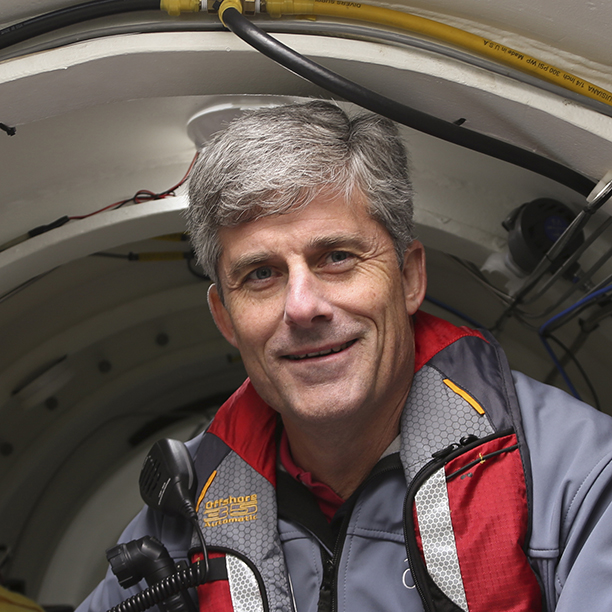Stockton Rush ’84 Explores Underwater Frontiers — Next Stop: The Titanic
“I was interested in exploration,” he says. “I thought it was space exploration, I thought it was Star Trek and 2001: A Space Odyssey and Star Wars … and then I realized, it’s all in the ocean.”
Rush, who majored in mechanical and aerospace engineering, shifted his focus toward a different final frontier. As the CEO and co-founder of OceanGate, a company that designs deep-sea submarines and leads underwater expeditions, he provides customers with unique opportunities to explore parts of the ocean that remain largely unseen.
“We don’t take tourists,” Rush says of his customers. “We like to refer to them as explorers, because we go with a mission.”
Since its founding in 2009, OceanGate has taken people to the wreckage of the Andrea Doria and SS Governor, as well as on a mission to survey the lionfish population off the coast of Florida. All of these expeditions have scientific discovery in mind.
“The difference between an explorer and an adventurer is an explorer documents what he does, and an adventurer just goes, pounds their chest and tells their friends,” Rush says.
Next year, OceanGate will set out on its most ambitious expedition yet: a manned mission down to the wreckage of the Titanic. Only about two hundred people have ever been to the site — fewer than the number of people who have been to space.
With the Titanic, Rush says, there’s a wealth of information waiting to be discovered.
“There’s not a lot of data on how these ships decay,” he says. “There are thousands of shipwrecks worldwide that sank with over 500,000 gallons of toxic substances, typically fuel oil.”
“Getting data on any wreck in any location over time has research value,” he adds.
Over the course of the expedition, the OceanGate explorers will conduct several laser- and 3D-scans of the wreckage.
Rush goes on every one of OceanGate’s dives, and he says they offer glimpses of an untouched world. “Part of what we do is get people to appreciate that most of human history is underwater,” he says. “If you think about it from an archeological perspective, if you had a caravan of precious items — records, books, gold, or whatever — and you were snowed in on the passes of Mongolia, all that stuff got stolen, pillaged. If you were in a ship carrying King Herod’s possessions to Rome and you sank, [it’s] still there.”
And, Rush says, while video can be fascinating, there is no substitute for seeing underwater artifacts in person. “You can get the world’s greatest pictures of the Mona Lisa, you can get perfect images of the Acropolis,” he says, but to appreciate them fully, “you’ve gotta go there.”












No responses yet